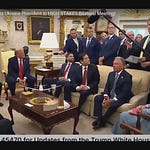Claire Fox serves as the Director of The Academy of Ideas, an organization dedicated to fostering critical thinking and robust debate within British society. She also holds a seat in the House of Lords.
As is increasingly evident across the West—perhaps with the exception of the United States— representative democracy is in crisis. The core issue lies in the electorate no longer being fairly represented. In the 2024 general election, the Labour Party secured 35% of the vote yet claimed an absolute majority with 62% in the House of Commons. Is this disparity the result of an outdated electoral system, or does it signal a deeper malaise within the British democracy?
The Brexit process, often foretold to unleash catastrophic consequences akin to biblical plagues, has not delivered the promised devastation upon the United Kingdom. Could it be that the economic challenges facing the UK are not the residue of its departure from the EU but rather the product of homegrown issues? What if the EU’s influence, or lack thereof, is ultimately inconsequential?
Freedom of expression in the UK is increasingly curtailed, often in ways that feel both arbitrary and inconsistent. A recent example unfolded at the Glastonbury Festival, where the band Bob Vylan chanted “death to the IDF”—a reference to the Israeli Defense Forces, not a call for violence against Israel or Jewish people. This distinction is critical, as it renders the statement, whether one agrees with it or not, difficult to classify as criminal. Yet, a criminal investigation was launched. Notably, the typically cautious BBC, which broadcasts live events with a delay to allow for censorship, chose not to intervene in this instance. Western societies seem trapped in a bind, caught between conflicting imperatives: an overzealous push toward Trevor’s Law and a justice system perceived as biased and lacking impartiality. When such statements, which fall within the realm of legitimate political controversy, are criminalized, how can this trajectory not lead to troubling outcomes?
Finally, it is impossible to ignore the failure of multiculturalism, an ideology imposed on Western societies since the late 1980s. Can a society that applies different rules to different communities based on their origins and beliefs truly be sustainable?
L’Eclaireur:
Claire Fox, thank you so much for taking the time to answer my questions. There seems to be throughout the West a pretty deep crisis of representative democracy. What gives in the UK?
Claire Fox:
It's interesting. There's been a shift. It is the case that the voting system in the UK is first past the post. Until relatively recently, more and more people felt that the voting system needed to change to a more proportional representation, for example, in order to allow new parties to break through. The voting system didn’t appear to be allowing the voices of some people to be heard—you could get millions of votes and not very many Members of Parliament.
Yes, it’s one round straight in the UK. There have been lots of arguments about this over the years. But the one thing that shifted this is that, ironically, in the last general election, it’s almost as though the dam burst and feelings around populism broke through. So we had something extraordinary happen: rather than the traditional two-party system—the Conservative Party and the Labour Party, with a third party, the Liberal Democrats, who have always gained some MPs—suddenly, new parties broke through.
On the one hand, rather worryingly, five independents who are Islamist supporters were voted in as MPs. They stood on a kind of pro-Gaza platform, but a very extreme version of that, and they won their seats. But more interestingly—and probably more in line with what’s happening around Europe—the Reform Party, Reform UK, led by Nigel Farage, a more traditionally populist party, also won five Members of Parliament through the first-past-the-post system.
I’ve noticed that the collapse of mainstream parties is so profound that even their supporters are now saying maybe we need proportional representation, just for them to stand a chance of getting more MPs than they’re likely to win under the current system. That’s a very technical question, by the way.
More generally, people do not feel represented. They do not feel heard. The reason Reform UK is making great strides—and appears in all opinion polls to be the party that would gain the most votes if a general election were held now—is precisely because of this disillusionment. The next election isn’t due for another four years, but the extraordinary rise of support for this outsider, insurgent party, which only just formed in the last year or so, reflects that the mainstream parties have become technocratic, looking to each other and to international bodies. They’ve been generally contemptuous of ordinary people’s concerns—more at home on the international stage than talking with people locally. So in that sense, the rise of Reform UK is an expression of the crisis of representative politics.
L’Eclaireur:
But still, it seems that you’re stuck with Keir Starmer, for instance. It’s pretty scary to find. I mean, there’s never been such a huge Labour majority in the UK, has there?
Claire Fox:
Yes, but he won a huge majority based on a very thin number of votes. He only got, I think, about 35% of the electorate’s votes. Many people only voted for Keir Starmer because of the wide disillusionment with the Conservative Party, who, after 14 years in power, had betrayed all their promises.
Many people had supported the Conservative Party from non-traditional conservative backgrounds because of Brexit. I know Brexit is a very UK phenomenon, but Boris Johnson won his election in 2019 because he promised to deliver Brexit. Some people voted Conservative for the first time ever—they were historically Labour voters.
So yes, Keir Starmer was elected legitimately using our system in the last election, which was less than a year ago. But already his popularity is absolutely plummeting. There is a huge collapse of support for the Labour Party. Obviously, we have a system where the election happens every four to five years. You can't change that. And we do have to live with the consequences of a democratic vote last year.
But I don't think it's a settled question. We now have a situation where Keir Starmer is Prime Minister, but very much with waning authority. He’s unable to get many of his policies through because he faces rebellions everywhere he looks, including within his own party. For example, some welfare proposals that were due to be implemented this week had to be completely abandoned in a U-turn.
L’Eclaireur:
You mentioned Brexit. Is it really as bad as people in continental Europe seem to think?
Claire Fox:
No. I mean, Brexit was never a destination—that’s what people often misunderstand. It was a decision to reclaim British sovereignty: for British people to have the right to decide their own laws, control their borders, and so on—without interference from the European Union or the European Council.
It was meant to be disruptive. The difficulty is that when the vote happened in 2016, the establishment was so shocked. They had organized the referendum expecting to confirm their pro-EU stance, but it backfired. After that, they spent all their time trying to block Brexit. So there was never an enthusiastic civil service or political class willing to use Brexit for something positive or creative.
It’s not nearly as bad as people say. Yes, there’s been some disruption to trade relationships. But the predicted scaremongering—that the economy would collapse—just didn’t happen. The UK’s economic troubles aren’t because of Brexit. We had sluggish productivity and economic issues when we were still in the EU, and those problems haven’t been properly addressed since.
Blaming Brexit for everything has become a lazy political excuse. And while some people don’t associate Brexit with many positive policy outcomes, what often gets missed—especially in the rest of Europe—is that Brexit represented a genuine democratic revolt. It was a moment when ordinary people said, “We should not be ignored. We have a voice. We should be treated as equals, not with contempt.” That spirit still lives on, even if many of the promises made during the Brexit campaign haven’t been delivered.
Now we find ourselves in a terrible situation, because Keir Starmer—who was one of the politicians who tried to overturn the referendum result and pushed for a second vote—is now Prime Minister. Though he claims to accept Brexit, he spends most of his time cosying up to EU figures like Ursula von der Leyen and talking about “resetting” our relationship with the EU.
In the latest trade negotiations, the UK made many compromises, particularly on sovereignty. For example—this will interest people in France—there’s been significant upset over fishing rights. It’s the same old fight.
L’Eclaireur:
Yeah, fishing—we’ve been fighting about that for ages, indeed.
Multiculturalism in the UK—is it a failure?
I just saw your last post on Substack about the sentencing issue, which was quite alarming. What’s going on?
Claire Fox:
Yes, multiculturalism has been a failure in the UK. But it’s important to untangle things a bit.
For many years, Britain has been a multi-ethnic society. People came here from all over the world—especially due to our history as an imperial power. There were arrangements that allowed people from former colonies to come here to live and work. That did cause some tensions, but it wasn’t necessarily a failure.
In fact, there was a strong, straightforward anti-racist movement 30 or 35 years ago that said: people from different ethnic backgrounds should not be discriminated against. That kind of integrationist, universalist approach was largely successful.
But multiculturalism—as a policy—is a different matter. It’s a deliberate government strategy that treated ethnic and cultural groups as distinct, almost separate communities, and deprioritized integration. That coincided with the rise of identity politics, and we’re now in a place where people view themselves and others primarily through the lens of race, ethnicity, or religion.
The colour of your skin has become central to how society interacts with you. People make political claims by beginning with statements like, “As a Muslim,” or “As a Pakistani,” and so on. That’s a major shift—and it’s fractured the idea of a shared civic identity.
And so it's led to a very fragmented and fractious atmosphere. The problem that we now have is that the elite have adopted an attitude of generally being sympathetic to those from different ethnic minority backgrounds. In terms of giving them a helping hand, it's constantly posed that they are the victims and that the state needs to intervene in order to help them.
And this, of course, has caused a great deal of antagonism and fractiousness amongst people who are white British, effectively. Particularly because the whole narrative around identity politics has been to suggest that anyone who happens to be accidentally born with white skin—not something you achieve, but just the way that you are—is accused of having some inherent privilege.
Which obviously does not play very well with the millions of ordinary working white people in this country who feel that the last thing they've got is privilege, because they are struggling to make ends meet. You know, they're often at the bottom of the pile in society.
And the stirring up of tensions is also around the promiscuous way that terms like racism and bigotry are bandied around. People are constantly being accused of racism if they raise any concerns about multiculturalism. They're accused of Islamophobia if they're worried about radical Islam.
And we have had some terrible examples of where this has really played out into a situation where we've looked the other way. For example, there was a huge bomb in Manchester less than 10 years ago, which killed very many young people at a concert—an Ariana Grande concert.
The security guards at that concert had noticed one young man with a huge rucksack, muttering and so on, looking very anxious, wandering around. And they were suspicious—what was he doing there? Why was he in the foyer of the Manchester Arena? But they didn't approach him because they were worried that they’d be accused of racism and Islamophobia.
And indeed, that young man was a terrorist who blew up that Manchester arena, butchering so many young people. And so this kind of fear of being labelled a racist has also led to this very fractured, problematic society, where we can't come together because we're seeing each other all the time through the lens of identity politics.
L’Eclaireur:
Is there any solution to that?
Claire Fox:
Well, the solution is obviously that we do not have laws that constantly accommodate people via their—what are called in the law here—protected characteristics. That we actually treat everybody equally in front of the law.
There have been recent examples where, for instance, the Sentencing Council of the United Kingdom recommended that when sentencing reports were written for people found guilty, certain types of people from different cultural and ethnic minorities should be given a special write-up that would effectively mean they didn't go to prison.
That is obviously two-tier sentencing. I mean, as it happens, even the Labour government realised this was a bit too explicit and backed away from it and said, no, we can't have two-tier justice. But in many instances, more informally, there is indeed two-tier justice.
People feel that, for example, if you are accused of some kind of racial hatred and found guilty in a court—which you can be in the UK for words that seem to be stirring up racial hatred—if you're white, you're likely to end up in prison for a very long time. However, if you're from an ethnic minority and you say, "Well, I only said that because I was a victim of racism," you will not be treated as harshly.
And constantly there are examples given that the police are very reluctant to go in and police areas where, for example, ethnic minority young people are involved in anything from knife crime to petty crime and multiple robberies in shops. They're frightened to go in because they're frightened of this accusation of racism. And that just leaves an atmosphere of lawlessness.
So when you say, is there anything you do? You can actually acknowledge that if you run society and say you won't do it. One of the things that is most egregious at the moment is the problem of illegal migration. Like everywhere in Europe, it's particularly problematic in the UK and takes the form of small boats coming from Calais. Many people on those small boats are obviously illegal migrants.
They are described by the elites as would-be asylum seekers and consequently, some argue, are treated with kid gloves. They're then given access to all sorts of services while we wait for them to be processed to see if they're asylum seekers. Very often, the huge majority are granted asylum status because the assessment methods tend to be sympathetic to people simply repeating what they've been told by their lawyer to say in order to be granted asylum.
Even when they are not granted asylum status, they are not deported because human rights laws are used to argue they might be persecuted—for example, because they're gay or for some other reason. We also have foreign nationals committing grotesque crimes—rape, murder, and so on—who this country refuses to deport on the basis of particular characteristics such as ethnicity or culture. Human rights lawyers are again deployed to stop those deportations.
Now, you can imagine what this means. The resentments and the genuine fear on my part is that this will lead to actual racism—not the promiscuous use of the word, but actual resentment of people because of their ethnicity in a reactionary and backward way. That will grow if the state does not get on top of this.
What we need to do is to get on top of it, to treat people equally, and to not allow human rights laws to be used in this divisive way. We should not treat people more favorably because of a particular ethnicity. We need to stop labeling people—as the government keeps doing—as far-right adjacent or extremists simply for raising concerns about these issues.
In terms of integration, one of the downsides of this collapse around multiculturalism is that I want to be able to say people should integrate into Britain and accept the laws, mores, and culture of the United Kingdom. The problem is we're not quite sure what that even means anymore. What does it mean to be British today? Nobody's quite sure—we've lost our sense of identity.
That very thing which fueled Brexit—the desire to regain a sense of what Great Britain meant, to be able to take control of our own destiny—has been watered down. So one of the things we need to do is to re-establish what it means to be British, so that people who come and live here can integrate into Great Britain.
L’Eclaireur:
That's quite a lot on your plate then. What about freedom of speech? We're hearing that 30 people on average are being arrested every day by the police for social media posts and sent to jail. What's happening in the UK?
Claire Fox:
Freedom of speech in the United Kingdom, as J.D. Vance pointed out in his Munich speech, is, to say the least, in a fragile state. We don’t have a First Amendment like America, but there has always been an assumption that freedom of speech was a default position. I’m afraid it has come under huge strain.
That strain has largely come through the promotion of hate crime legislation and the growing notion of hate speech. Communications laws have been added to the statute books, especially with the rise of social media, where more and more people have platforms that are visible—and thus policed.
Police often monitor social media looking for examples of hate speech. This has led to a massive increase in prosecutions for hate crimes—not what I would call real crimes, not crimes like physically attacking someone because of the color of their skin or their sexuality—but because of what was said.
So when you say, is there anything you do? You can actually acknowledge that if you run society and say you won't do it. And one of the things that is most egregious at the moment is because like everywhere in Europe, but particularly problematic in the UK, we have this problem of illegal migration and it takes the form of the small boats coming from Calais.
Many people on those small boats are obviously illegal migrants. They are described by the elites as would-be asylum seekers and consequently, some argue, are treated with kid gloves. They're then given all sorts of access to services while we're waiting for them to be processed to see if they're asylum seekers. Very often, the huge majority are given asylum status because of the assessment methods, which tend to be sympathetic to people simply reiterating what they've been told by their lawyer to say in order to be given asylum status.
When these things go on, then we have a situation where even when they are not given asylum status, they're not deported because human rights laws are used to say, if we deport them back, they might be persecuted because they're gay—because that's what people know to say—or because of some other different reason.
We also have foreign nationals who are committing grotesque crimes—rape, murder, and so on—who this country won't deport on the basis of their particular characteristics, their ethnicity, their culture. Human rights lawyers again are deployed to try and stop those deportations. Now you can imagine what this means: the resentments and the genuine fear on my part that this will lead to actual proper racism, rather than that promiscuous use of the word, but actual racism—where people do simply just become resentful of others because of their ethnicity in a reactionary and backward way. That will grow if the state does not actually get on top of this.
What we need to do is get on top of it and treat people equally—not allow human rights laws to be used in this divisive way and to not treat people favorably because of a particular ethnicity. We need to stop labeling people, which is one of the things the government keeps doing, as far-right adjacent or extremists and so on just because they raise concerns about these issues.
And in terms of integration, of course one of the downsides of this collapse around multiculturalism is I want to be able to say that people should integrate into Britain and accept the laws, mores, and culture of the United Kingdom. The problem is we’re not quite sure what it is ourselves. I mean, what does it mean to be British today? Nobody's quite sure. It's kind of lost its sense of identity. And that very thing which Brexit was fueled by—to regain a sense of what Great Britain meant, to take control of our own destiny—has been watered down.
So one of the things we need to do is re-establish what it means to be British so that people who do come and live here can integrate into Great Britain.
Freedom of speech in the United Kingdom, as J.D. Vance pointed out in his Munich speech, is—to say the least—in a fragile state. We don’t have a First Amendment like America, but there’s been an assumption that freedom of speech was a default position. I'm afraid that it's been under huge strain.
It's largely been through the promotion of hate crime laws and the notion that something is hate speech. Communications laws have been added to the statute books. This is especially the case with the rise of social media, where more and more people have a platform that’s visible. The police monitor it and look for examples of hate speech, which has led to a massive increase in the number of people prosecuted for hate crimes—not real crimes like assault or threats, but what was said.
Hate is itself a very subjective category. And so as a consequence, it's become a real catchall for prosecuting people. Although most people who are prosecuted don't end up in prison, some do.
In the civil unrest last summer, particularly during the riots, there were egregious examples of the government clamping down on what people said on social media about the riots, which were an explosion of discontent—particularly in relation to race. Some of it was incredibly unpleasant and undoubtedly had a racist element: people going around and beating others up because they were British Asians, British Pakistanis, or what have you, because they looked different. That obviously is racism and it’s right to prosecute that.
But then there were people saying things out of frustration—that the police don't prosecute people for Islamism or don’t prosecute people involved in the UK’s grooming gang scandals, where the perception was that the police failed to act because the perpetrators were predominantly Pakistani Muslims.
As head of prosecution, Starmer was one of the first people to actually send people to jail, so he deserves credit for that. But it also means he knew about it early on. Since becoming Labour leader, he hasn’t led a campaign against those rape gangs. He’s tried to dampen the flames and anxiety. He knew about it—he was a chief prosecutor during the initial wave of prosecutions. But he never wanted it to be a political issue.
Why? It seems to me that it was a huge embarrassment for the political class, particularly the Labour Party, because many of the areas where these systematic, industrial-scale sexual assaults on young white women happened were Labour-run council areas. So there was delicacy and cover-up in those local areas. It was embarrassing for the Labour Party.
But the Conservative Party weren’t much better—they didn’t do much either. It’s been a genuine scandal that the authorities covered it up. And as a consequence, we have a situation in which people who spoke out about it—this is where I was going with the speech crimes—were often prosecuted for hate crimes.
The riots last year were partly an overspill of frustration around those issues. Yet what emerged during those riots was a desire to silence people from discussing them—unless what they said fit the government narrative. There were government warnings on social media: "Watch what you post," "Think before you post"—a real thought crime threat from the government. We all now feel that free speech is not safe in their hands.
One irony is that the previous government passed a law—the Free Speech and Academic Freedom Bill, which I helped fight for as a legislator and as head of the Academy of Ideas. It was meant to strengthen academic freedom in universities—one of the major places where free speech is under threat.
That bill had passed and was about to be enacted. Then Labour got elected. One of their first acts was to scrap that bill. That shows you their priority is not protecting free speech, but suppressing it.
One more thing on free speech: there’s been a big controversy this weekend about Glastonbury, the music festival. A band called Bob Vylan led chants saying "Kill the IDF" about the Israeli military force. The BBC showed that, because the British Broadcasting Corporation loves nothing better than Glastonbury—they think it attracts lots of young people, so they try to look trendy. They sent 900 journalists to cover Glastonbury. 900! It’s just ridiculous.
I enjoyed watching Neil Young at Glastonbury, where BBC coverage is extensive with film sets everywhere. However, the event has become highly politicized, particularly with student-level activism around Palestine, which is a major cause among young people in this country. Everyone’s standing up saying “free Palestine” and talking about Gaza. One act, Bob Villain, was very aggressive, chanting slogans like “kill the idea” and “from the river to the sea,” sparking major controversy.
This is a gross example of how casual Jew hatred has infiltrated youth culture. That said, I don’t think they should be arrested or that Glastonbury should be fined for giving a platform to a rock band that says gross things. Many free speech advocates argue it’s hate speech and shouldn’t be allowed, but this shows a lack of consistency across the political spectrum—free speech for me, but not for thee.
However offensive the band’s sentiments, I don’t want the state policing music festivals or requiring performers to submit scripts of what they’ll say. Free speech is on shaky ground without a principled commitment across the board, even from those fighting censorship.I understand emotional reactions—I was furious watching that band perform, especially since the BBC, which usually cuts off anything they deem remotely offensive like Islamophobia or transphobia, didn’t notice this.
You can feel disgusted, but you must step back. Reacting emotionally is one thing; demanding state intervention or censorship is another. We can be rational and recognize it’s dangerous to let the state police music festivals or artworks. We don’t want performers’ politics to dictate who gets booked. There’s real antisemitism in arts and culture, with festivals boycotting acts linked to Israel or Jewish artists. Similarly, a new UK report highlights censorship in publishing, where women with gender-critical views are denied deals or dropped by agents for supporting figures like JK Rowling. Books should be published based on quality, not politics.
Emotional reactions to displays like Glastonbury’s must not lead to policies that enable broader censorship, which could be used against any unpopular view. We shouldn’t legislate against hate speech, as one person’s hate speech is another’s legitimate political point, like on biological sex, which trans activists might call transphobic. We need to be cool-headed when arguing for policies.
As for the UK’s future, it’s turbulent, with no return to status quo politics. Alternative political voices will disrupt the system, and I anticipate a major upset in the next general election, with Labour and the Conservatives greatly diminished, as seen in other European countries. The populist surge will reshape British politics, marking the start of a new historic period.
The 20th-century arrangements are collapsing, and the technocratic elite, with flimsy popular support, will fade. This is nerve-wracking but exciting, as it’s an opportunity to tear up the old. While some populist forces lean authoritarian or ethno-nationalist—views I oppose—much of it is positive, reasserting democracy after years of elite control over decision-making. It has revolutionary potential, though it won’t be smooth, and I’m excited to help shape it.












